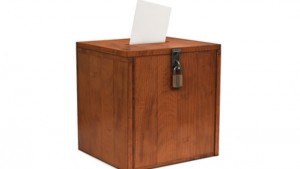 Commonwealth citizens living and working in Barbados have already started taking advantage of a High Court decision, handed down on Monday, which reaffirmed their right to vote in the next general election.
Commonwealth citizens living and working in Barbados have already started taking advantage of a High Court decision, handed down on Monday, which reaffirmed their right to vote in the next general election.
Wilfred Abrahams, one of the lawyers who successfully argued that such citizens living or working in Barbados for at least three years were entitled to be registered to vote, told the media some eligible citizens were able to start registering with the Electoral and Boundaries Commission (EBC) from yesterday.
In a landmark decision in response to a class action lawsuit filed last year, Chief Justice Sir Marston Gibson ruled that the EBC was in contravention of the Representation of the People Act by not allowing a number of Commonwealth citizens to register to vote.
The plaintiffs in the substantive matter were St Lucian professor Eddy Ventose, Shireen Ann Mathlin-Tulloch of Grenada; Jamaican Michelle Russell and Sharon Edgecome-Miller of Montserrat, who were all denied the chance to register to vote in the next election, constitutionally due by June.
Speaking during a press conference at the offices of the Barbados Bar Association on Roebuck Street, St Michael, Abrahams and fellow attorney Gregory Nicholls said they were glad the matter had been settled, since it would allow scores of Commonwealth citizens to exercise their democratic right under the Constitution.
“For a number of years, the Electoral and Boundaries Commission had been refusing to register Commonwealth citizens living in Barbados,” Abrahams said. “We had been mooting this for a while, but we had difficulty getting a complainant, someone who wanted to step forward and do it, before Shireen Tulloch attempted to register and was denied the chance to even submit her application.”
Both he and Nicholls said they were still bewildered as to why the EBC would have acted in that way for so many years, and in the process place Barbados in an embarrassing position internationally.
They cited law which indicated that officers at the ECB who prevented Commonwealth citizens from registering on the voters’ list would not have been just denying those persons their rights under the Representation of the People Act, but also placing themselves at the mercy of the law courts.
Under Section 28 (1) of the act, any registering officer or enumerator who wilfully or without reasonable excuse, omits to register the name of any person qualified to be registered is guilty of an offence and upon summary conviction is liable to a fine of $250 or imprisonment for six months, or both.
“There was a lot of sentiment about this. There were a lot of upset and disgruntled Commonwealth citizens living in Barbados, some of whom had voted before, and some who were being denied the right,” said Abrahams.
Nicholls said that based on the clear provisions within the act, there was no surprise in their camp when Sir Marston ruled in their favour.
“The Electoral and Boundaries Commission had been acting in defiance of the very clear provisions in the act,” Nicholls stressed. He added that legal right had been in place since the 1970s, and there were reciprocal rights for Barbadians living in other Commonwealth jurisdictions who wanted to be part of the electoral process.
“It is a strange thing when you have a significant branch of the Executive like the Electoral and Boundaries Commission defying the law. The Chief Justice made it very clear that Parliament is the only entity that can determine lawfully who is allowed to vote.”
According to Nicholls, the ECB, in its court argument, had erred in trying to imply a Commonwealth citizen would have needed immigrant status or permanent resident status in order to register to vote.
